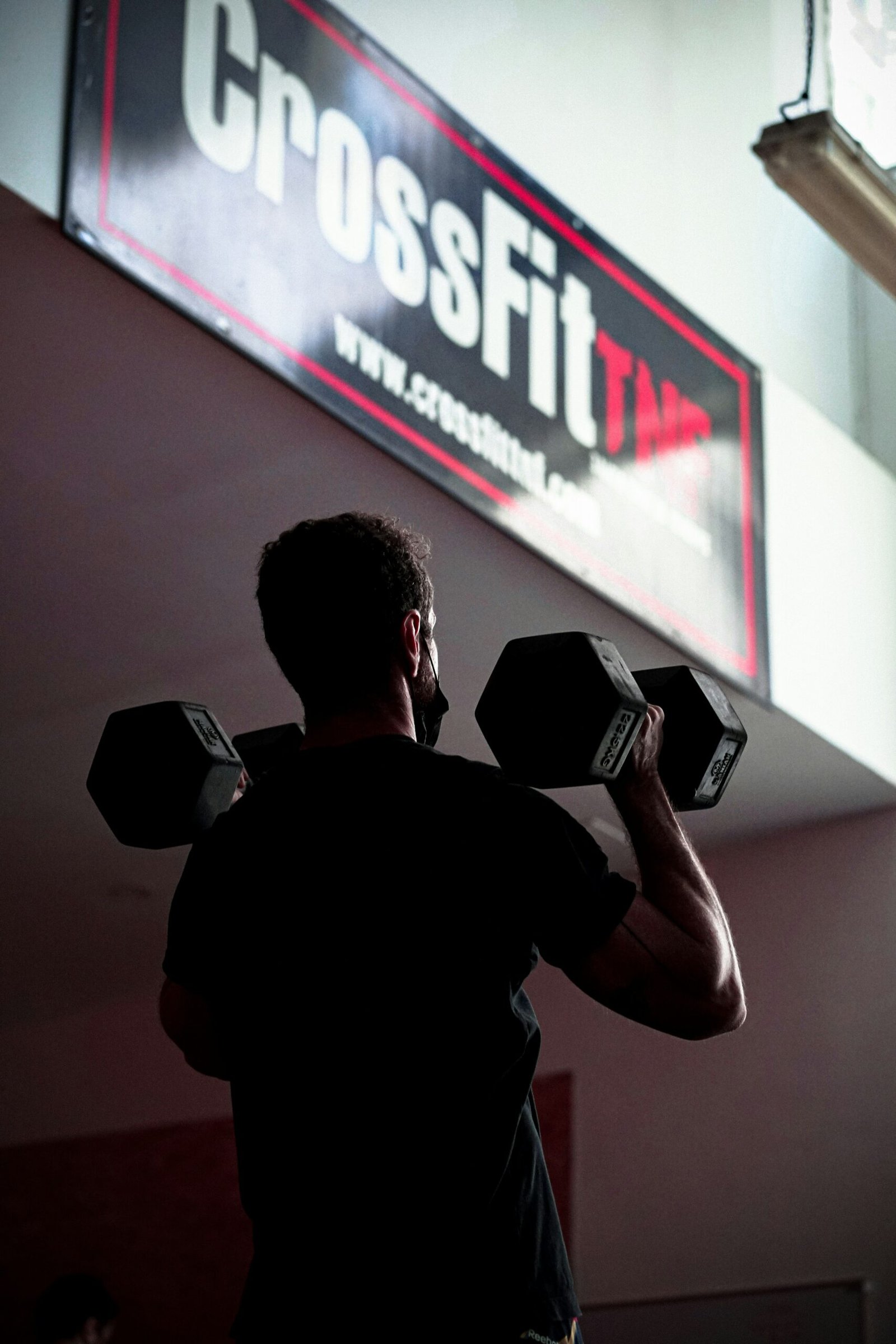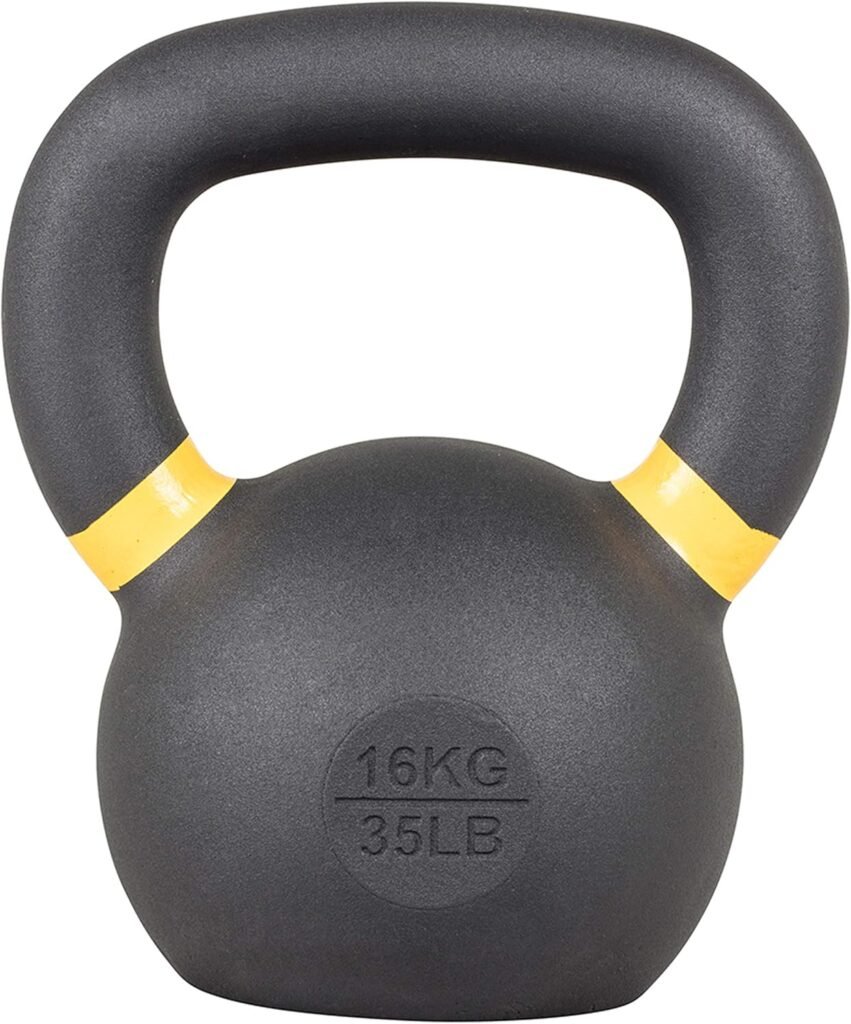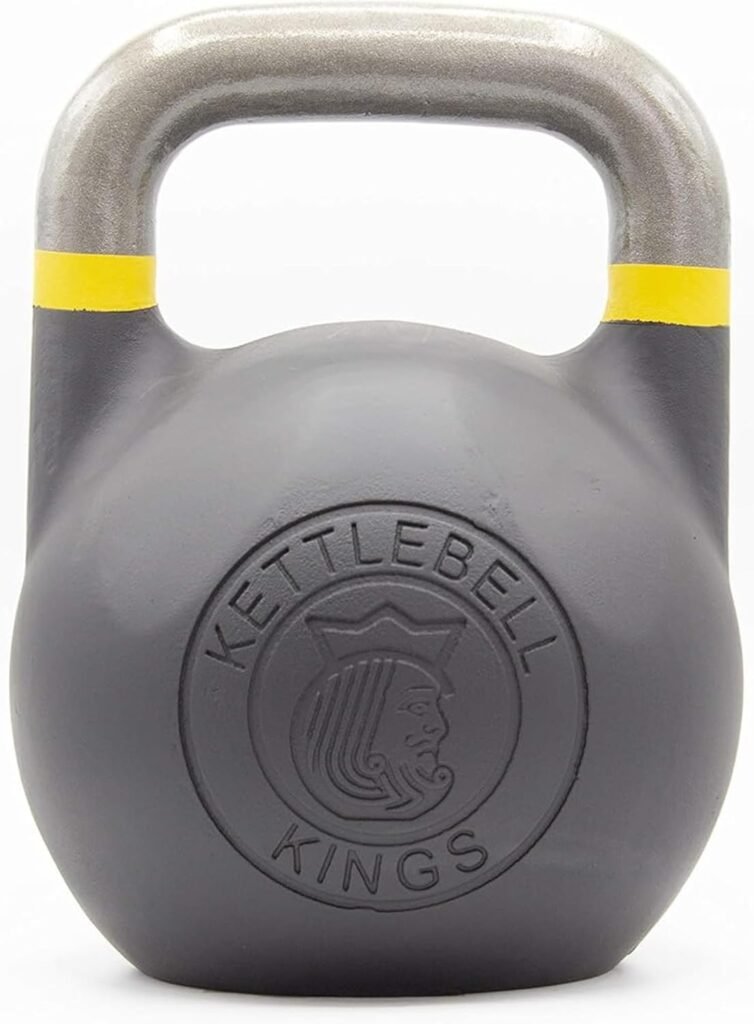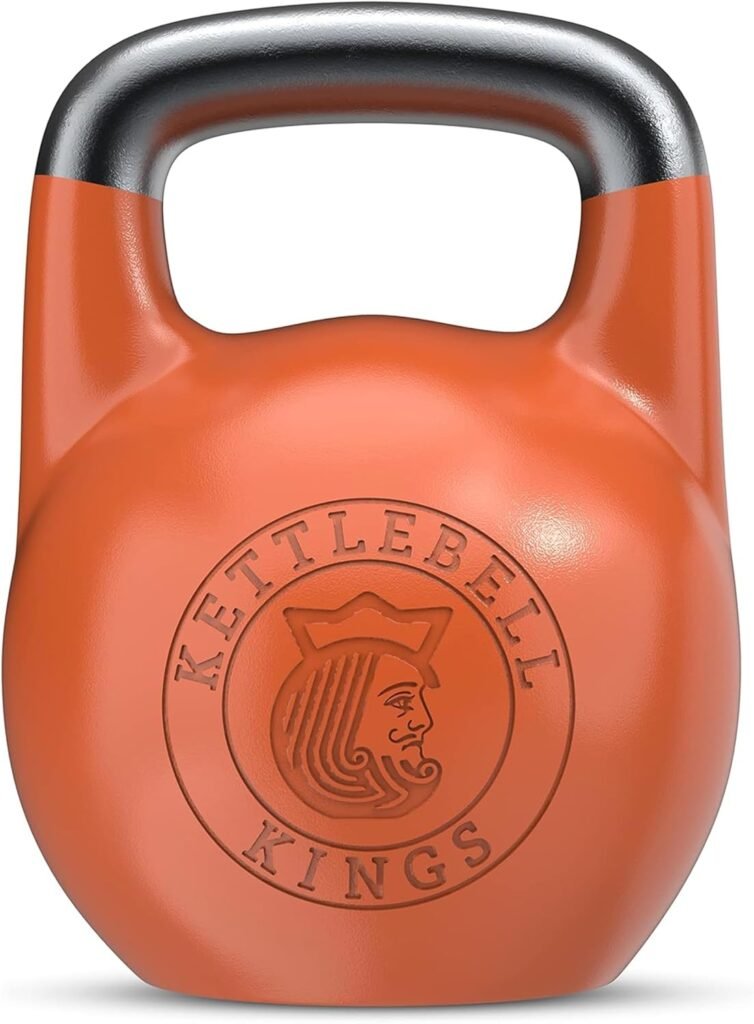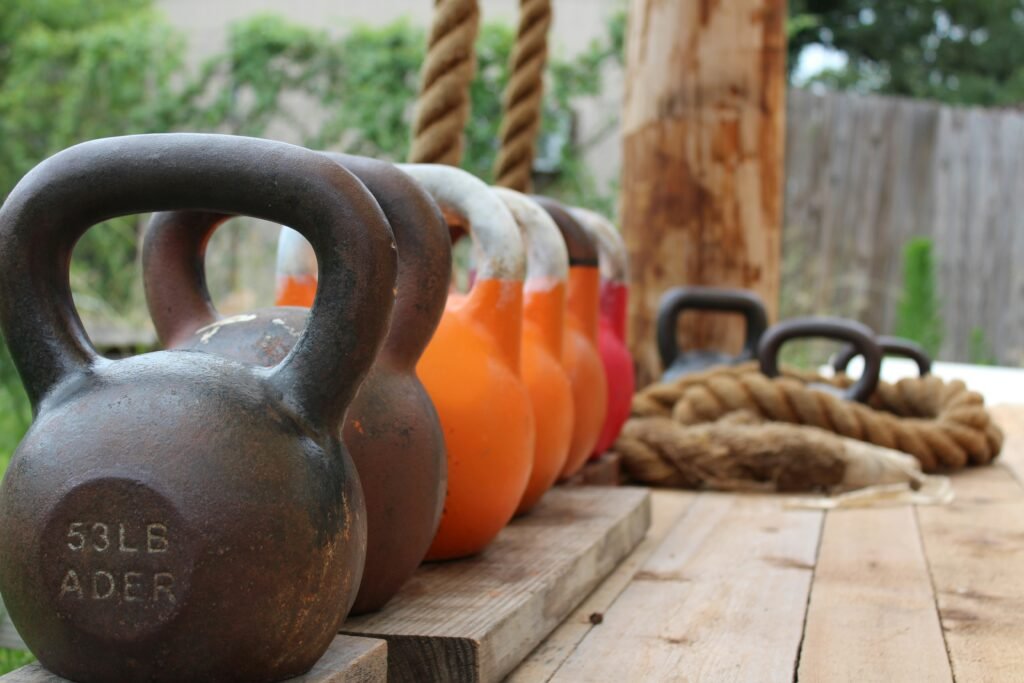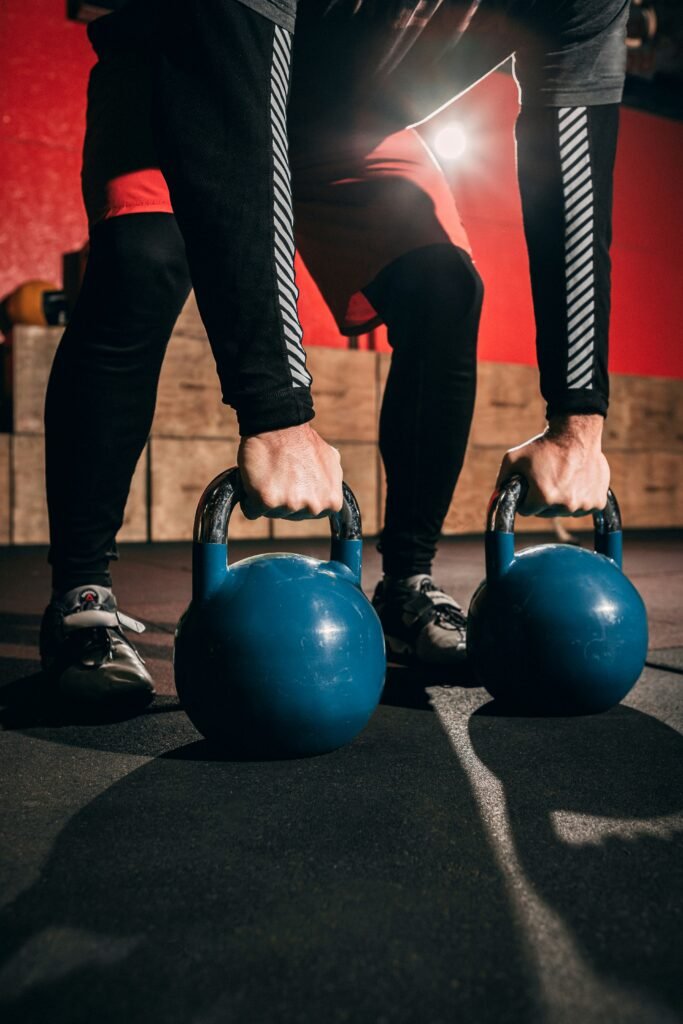Have you ever thought about incorporating kettlebell exercises into your routine? Kettlebells are versatile and can deliver an excellent workout for people at all fitness levels. If you’re just starting out, you’re in the right place. Let’s get into the basics of exercising with kettlebells and why they’re a fantastic choice for beginners.
You are currently viewing a placeholder content from YouTube. To access the actual content, click the button below. Please note that doing so will share data with third-party providers.
More InformationWhat Are Kettlebells?
Kettlebells are cast iron or vinyl weights that resemble a cannonball with a handle. They come in various sizes and weights, making them suitable for many strength and endurance workouts. Unlike traditional dumbbells, their unique shape allows for a different range of motion and can enhance your workout by engaging multiple muscle groups at once.
The Benefits of Kettlebell Workouts
Using kettlebells can transform your fitness routine in numerous ways:
Full-body Engagement: Kettlebell workouts often involve compound movements that work several muscle groups simultaneously, promoting overall strength and balance.
Improved Core Stability: Many kettlebell moves, like swings and lifts, require core activation, which can lead to better stability and improved posture.
Cardiovascular and Strength Training: Kettlebell workouts can elevate your heart rate while building strength, efficiently combining cardio and resistance training.
Convenience: Kettlebells are compact and easy to store, making them excellent for home workouts. You won’t need a lot of space to get an effective workout in.
Fun and Variety: The many different exercises possible with kettlebells keep your workouts fresh and exciting.
Safety First: Getting Started
Before you begin your kettlebell journey, it’s important to keep several safety considerations in mind.
Choosing the Right Weight
Selecting an appropriate kettlebell weight for beginners is crucial. You want a weight that challenges you without compromising your form. Start lighter—typically between 8 to 12 kg (18 to 26 lbs) for women and 12 to 16 kg (26 to 35 lbs) for men—and adjust as you build strength.
Proper Technique and Form
Focusing on form is vital to avoid injuries. Here are some tips for maintaining good form:
- Keep your back straight: Avoid rounding your back. Your spine should remain neutral throughout your movements.
- Engage your core: Activating your core muscles can provide stability and protect your spine.
- Start slow: Begin with fewer repetitions and focus on mastering your technique before increasing intensity or volume.
The Essential Kettlebell Exercises for Beginners
Let’s look at some fundamental kettlebell exercises that you can start with. These movements are excellent for building strength, increasing coordination, and helping you gain confidence with kettlebells.
Kettlebell Swing
The kettlebell swing is one of the most popular and effective exercises.
How to Perform:
- Stand with your feet shoulder-width apart and the kettlebell on the floor in front of you.
- Bend at your hips and knees to grab the kettlebell with both hands.
- Swing the kettlebell back between your legs.
- Propel your hips forward as you swing the kettlebell up to shoulder height, keeping your arms straight.
- Allow the weight to swing back down and repeat.
Benefits: This exercise targets the glutes, hamstrings, and core while increasing your heart rate.
Goblet Squat
The goblet squat is a fantastic way to practice your squats while holding a kettlebell.
How to Perform:
- Hold a kettlebell close to your chest, keeping your elbows pointed down.
- Stand with your feet slightly wider than shoulder-width apart.
- Lower your body into a squat, ensuring your knees don’t extend past your toes.
- Press through your heels to return to the starting position.
Benefits: Goblet squats work your legs, glutes, and core while improving your squat technique.
Kettlebell Deadlift
This movement mimics the traditional deadlift but with the added challenge of the kettlebell.
How to Perform:
- Stand with your feet hip-width apart, positioning the kettlebell between your feet.
- Hinge at your hips and bend your knees to grab the kettlebell with both hands.
- Keeping your back flat, push through your heels to stand tall, lifting the kettlebell.
- Lower the kettlebell back down to the ground by hinging at your hips again.
Benefits: The kettlebell deadlift strengthens the back, legs, and core.
Kettlebell Press
The kettlebell press is great for building upper body strength.
How to Perform:
- Stand with your feet shoulder-width apart, holding the kettlebell in one hand at shoulder height.
- Keep your core engaged and your elbow close to your body.
- Press the kettlebell overhead while keeping your wrist straight.
- Lower it back to the starting position and switch arms after a set number of reps.
Benefits: This exercise targets the shoulders, triceps, and core.
Kettlebell Row
The row builds upper back strength and helps improve stability.
How to Perform:
- Stand with your feet hip-width apart and hold the kettlebell in one hand.
- Bend at the hips, keeping your back straight, so your upper body leans forward.
- Pull the kettlebell toward your hip while keeping your elbow close to your side.
- Lower the kettlebell back down and switch arms after completing your reps.
Benefits: The kettlebell row works the upper back, biceps, and improves posture.
Creating Your Kettlebell Workout Routine
Now that you know some essential kettlebell exercises, how do you put them together? A balanced workout can target different muscle groups while keeping things interesting.
Sample Beginner Routine
Here’s a simple kettlebell workout for beginners. Aim for 2-3 sessions per week.
| Exercise | Sets | Reps |
|---|---|---|
| Kettlebell Swing | 3 | 10-15 |
| Goblet Squat | 3 | 10-15 |
| Kettlebell Deadlift | 3 | 10-12 |
| Kettlebell Press | 3 | 8-10 |
| Kettlebell Row | 3 | 8-10 |
Warm-Up and Cool Down
Always begin your kettlebell workout with a warm-up to prepare your body and end with a cool down to help in recovery.
Warm-Up: Take 5-10 minutes to do light cardio and dynamic stretches (like leg swings, arm circles, and hip openers) to get your muscles activated.
Cool Down: Finish your workout with static stretching, focusing on major muscle groups. Hold each stretch for 20-30 seconds.
Tips for Progression
As you become more comfortable with your kettlebell routine, you might want to challenge yourself further. Here are some ideas:
Increase Weight
Once the kettlebell feels light, it might be time to move up to a heavier one. This progression will require more strength and can enhance your muscle gains.
Add Repetitions or Sets
Instead of increasing weight, consider adding more repetitions or an additional set. This approach can enhance endurance and strength.
Vary Your Exercises
To keep your workouts fresh and engaging, incorporate new kettlebell exercises. There are countless movements to try, from kettlebell snatches to Turkish get-ups.
Common Mistakes to Avoid
While you’re starting your kettlebell journey, be aware of some common pitfalls to ensure you get the most from your workouts.
Avoiding Bad Form
Always prioritize good form over lifting heavier weights. If you aren’t confident in your form, consider working with a trainer or watching instructional videos.
Overdoing It
New to kettlebells? Don’t push yourself too hard. Allow adequate recovery time in your routine to prevent injuries. Listen to your body and opt for rest if you feel overly fatigued.
Neglecting the Core
Your core should be engaged during almost all kettlebell movements. Not only does this help with stability, but it also contributes to overall strength.
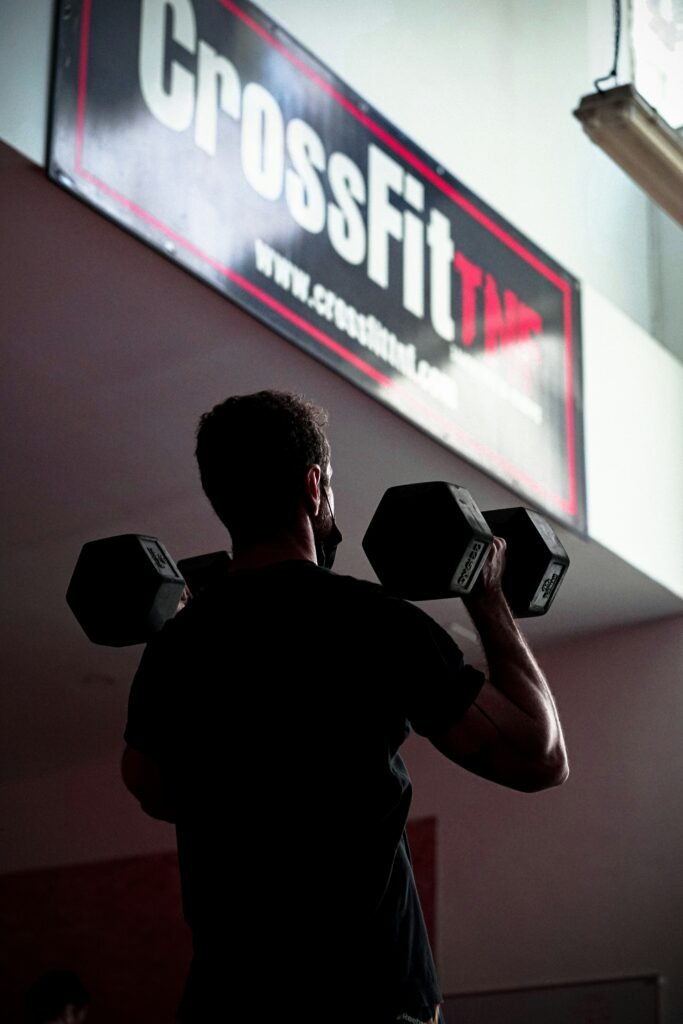
Conclusion: Embrace the Kettlebell Adventure
Incorporating kettlebell workouts into your routine can open new doors to strength and fitness. Start slowly, focus on form, and gradually incorporate various exercises. As you gain confidence, you’ll discover the joy of kettlebells and the incredible benefits they offer.
Each workout is an opportunity to improve, so keep challenging yourself with new weights and movements. You’re on your way to a stronger and more balanced body, and kettlebells can be your trusted companion on this journey. Enjoy the ride, and remember that every swing brings you closer to your fitness goals!

